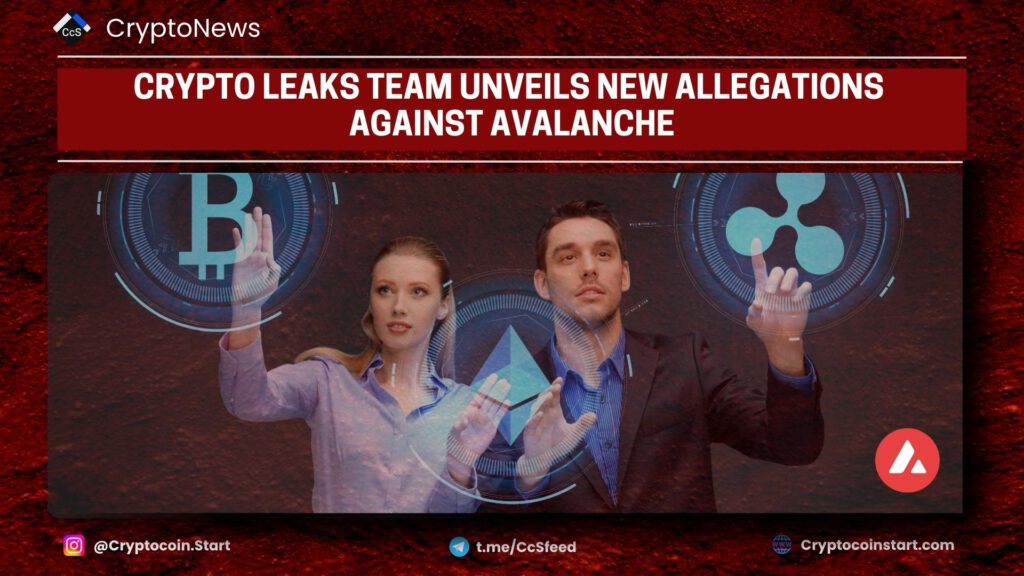
Crypto Leaks Team Exposes New Allegations Against Avalanche
The Crypto Leaks team has brought Avalanche back into the spotlight with a series of impactful documents addressing various events in the cryptocurrency markets. Their latest report, file number 11, raises significant questions about the decentralization of the Avalanche network. Let’s explore the details of these allegations and what they may mean for the blockchain.
Summary of Allegations Against Avalanche
The Crypto Leaks team asserts that Avalanche’s network exhibits centralization in several key areas. They argue that the Avalanche Foundation has taken control of the network and its protocol, claiming that Ava Labs consists mainly of paid developers. Additionally, they note that Ava Labs operates a significant portion of the network’s validating nodes, a fact not widely publicized.
Moreover, the report suggests that Ava Labs is the primary recipient of validator fees and likely holds a substantial majority of the AVAX token supply. It also alleges that Emin Gün Sirer, the CEO of Ava Labs, has been out of touch with executives, spending six months in Turkey with his family and often being unreachable.
Avalanche and Crypto Leaks Allegations
The report credits Fabio Barone, a senior engineer at Ava Labs in Latin America, with creating the centralized structure of the Avalanche network. Drew Pierson, former Communications Director at Ava Labs, worked closely with CEO Emin Gün Sirer, COO Kevin Sekniqi, and President John Wu during his tenure.
Barone claims that Ava Labs leadership has ignored the growing centralization of AVAX for their personal financial gain. He points to the extensive treasury of AVAX tokens held by Ava Labs, which has been used to add numerous validating nodes to the network, generating profit for the company.
“It appears that Ava Labs uses the extensive treasury of AVAX tokens held for insiders and venture capitalists to add numerous validating nodes to the network, thereby profiting,” says Barone.
Risks of Centralization
The centralization allegations pose several risks to Avalanche and its users. If the claims are accurate, they could have significant implications, including:
- AVAX may face classification as a security in the US and EU, leading to regulatory challenges.
- The network could lose appeal due to being perceived as less secure compared to more decentralized public blockchains.
- The community, users, and media may be misled if the allegations of centralization are proven true.
- There is a heightened risk of price manipulation for AVAX tokens due to centralization.
Additional Allegations and Concerns
Alongside these centralization claims, the Crypto Leaks report includes several other troubling allegations:
- The true identities of the Stars Arena founders were unknown, yet Emin Gün Sirer publicly supported them, followed by a $3 million hack incident.
- Basketball player Dwight Howard announced plans to visit Avalanche, which was later retweeted, but the account was hacked shortly after.
- False claims were allegedly made against Polygon in a smear campaign.
- Avalanche’s partnership with Sports Illustrated was allegedly for marketing purposes only, with no actual ticket sales occurring on the network.
With all these concerns and allegations brought to light, the crypto community is eagerly awaiting a response from Avalanche. The accusations, especially from former employees like Pierson and Barone, raise serious questions about the network’s operations and decentralization.


